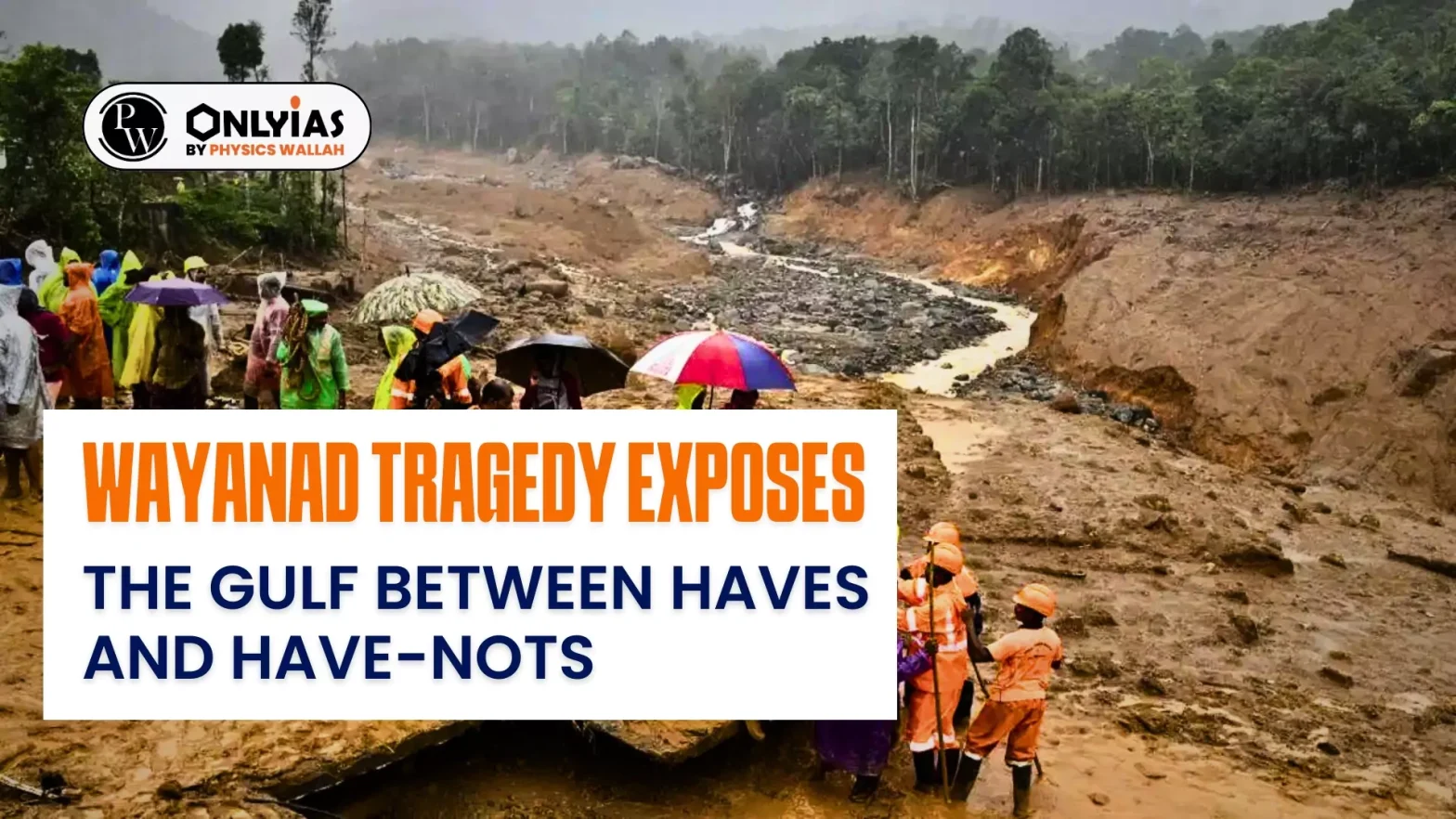Focussing on building up highly-subsidised man-made capital at the costs of natural, human and social capital, has worsened economic, social, educational and health disparities
| Relevancy for Prelims: Landslides, Types of capital stocks, Western Ghats Ecology Expert Panel (WGEEP), etc.
Relevancy for Mains: Wayanad tragedy, Need for sustainable development in ecologically sensitive areas, Recommendations of the Western Ghats Ecology Expert Panel (WGEEP) etc. |
Wayanad Tragedy Exposes The Gulf Between Haves And Have-Nots
- Impact: Entire villages—Mundakkai, Chooralmala, Attamala, Noolpuzha—buried under debris with at least 300 lives lost.
- Societal Implications: Tragedy highlights the disparity between the haves and the have-nots.
- Environmental Insights: Mudflow destroyed eucalyptus plantations but left a single Ficus beddomei tree standing. Indicates that replacing original vegetation with exotics like eucalyptus contributed to the disaster.
- Forest Management Debate: Debate on the role of village communities versus state control of forests.
- Gulf Between Haves And Have-Nots: The story of tea planters and the labourers forced to live in the gorges tells us much about the history of forest and land management in India.
Enroll now for UPSC Online Course
Concept of Capital Stocks
- Four types of capital stocks:
- Natural Capital: Water, vegetation, biodiversity, agriculture, animal husbandry, fish production.
- Social Capital: Cooperative behavior, sense of security.
- Human Capital: Education, health, employability.
- Man-Made Capital: Infrastructure and development.
- India’s focus: Building heavily subsidized man-made capital.
- Impact on other capitals:
- Natural Capital: Degradation due to increased human interventions (mines, quarries, roads, buildings on hill slopes).
- Human Capital: Worsened disparities in economic, social, educational, and health sectors.
- Social Capital: Erosion of cooperative behavior and security.
- Resulting issues:
-
- Increased frequency and intensity of human interventions in ecologically sensitive areas.
- Negative impact on overall social welfare and international competitiveness of industries.
Recommendations and Challenges of the Western Ghats Ecology Expert Panel (WGEEP) Guidelines
- WGEEP Guidelines: Regulate and promote developmental activities based on ecological sensitivity.
- Zones: High, moderate, and low ecological sensitivity
- Approach: Initiate a bottom-up democratic decision-making process with Gram sabhas and mohalla sabhas as starting points.
- Nature of Guidelines: Not final or rigid but meant to start a participatory process.
- Government Response and Impact:
- Neglect: Governments have ignored WGEEP proposals.
- Consequences: Increased frequency of floods and landslides. Landslides in Maharashtra Western Ghats increased 100-fold from 2011 to 2020.
- Need for Stringent Actions: Protect nature and empower decentralized democratic institutions.
Check Out UPSC Modules From PW Store
Conclusion
The Wayanad tragedy underscores severe disparities and ecological mismanagement, emphasizing the urgent need for stringent environmental protections and empowered local decision-making to address these crises.
![]() 9 Aug 2024
9 Aug 2024
